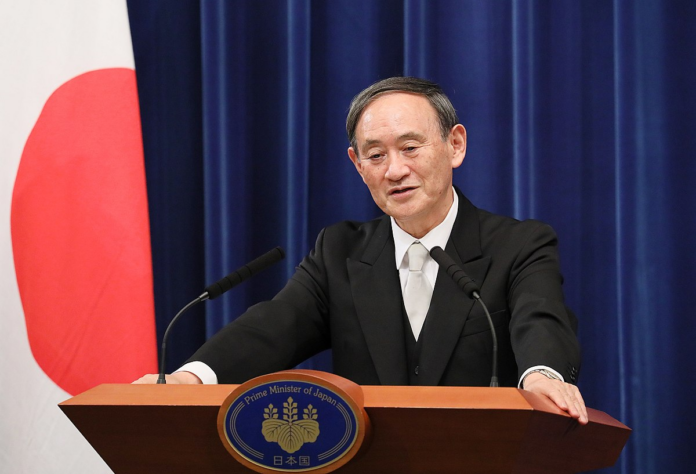By Henry Su
At the end of August, Japan’s prime minister Shinzo Abe announced his sudden resignation, citing health concerns. Elections originally anticipated for 2021 were moved to early September, in which Abe’s Liberal Democratic Party voted overwhelmingly to elect Yoshihide Suga.
Suga served as cabinet secretary to Abe from his election in 2012. Directly responsible for coordinating departments under the jurisdiction of the executive branch, Suga assumed his role as the right-hand man to Abe, and his natural successor, representing a continuity of his predecessor’s policies.
The ascendancy of a new Prime Minister for Japan comes at a time when Japan is readjusting its role abroad, as well as combating high national debt and a prolonged downturn. Suga’s administration promises to continue economic policymaking under the guidance of “Abenomics”, the plan his predecessor developed to combat Japan’s economic stagnation in the 2010s. While Abe’s investments in business through the Bank of Japan proved successful, promised economic reforms were seen by economists as coming up short in preventing Japan’s economy from stalling through the end of the decade. In order to reverse the downturn and promote Japanese economic growth, Suga must pursue aggressive regulatory reform in a break from his predecessor’s relatively modest legacy.
Suga will also be reckoning with an uncertain future for Japan’s position on the global stage. The Abe administration made strides in advancing Japan through renegotiating the Trans-Pacific Partnership following President Trump’s exit from the agreement, as well as negotiating a new free-trade agreement with the European Union. Prime Minister Suga will seek to preserve Japan’s valuable export markets, as well as to navigate divisions in his own party to push through economic reforms. While it remains to be seen how Suga’s leadership will deal with steadfast opposition to domestic reform- battles his predecessor simply refused to fight- he has already established himself as an effective bureaucrat who is markedly more conscious of public opinion than Abe. In his first months in office, he has promised to restructure Japan’s confused coronavirus response and strengthen ties with other East Asian countries as part of an organized effort to counter the effects of a contracting global economy.

